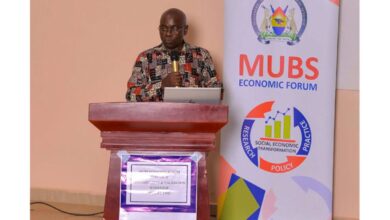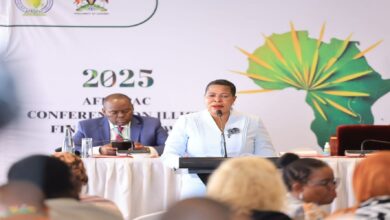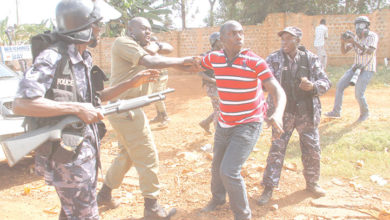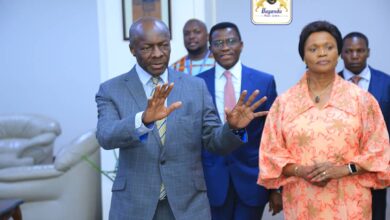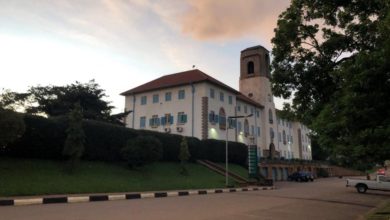Local News
The writers breathing fresh life into Ugandan literature
A new generation of authors is inspired by subjects as diverse as oral tradition, corruption and feminism
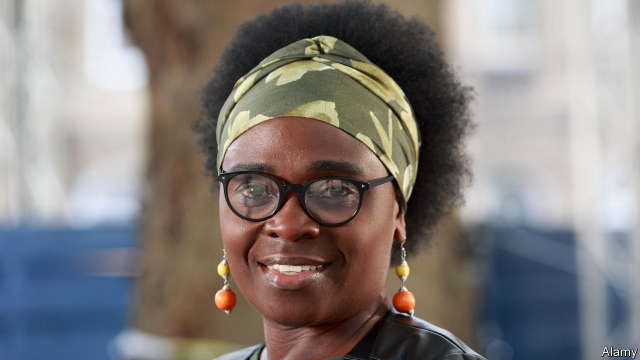
IN 2003 Harriet Anena was a schoolgirl in northern Uganda, a region then at war. The army had ordered people into squalid, crowded camps; insurgents stalked the bush. “We scratch our destiny / from hands of a curtailing fate,” she scribbled, sitting beneath a mango tree. In poetry she found a way to ask questions that children, especially girls, were not supposed to ask. “I started writing for therapy,” she says.
This month Ms Anena recited those lines on the stage of the National Theatre in Kampala, melding drums, dance and poetry in an arresting evocation of love and war. Her performance was the highlight of this year’s Writivism festival, an annual celebration of creative writing, and a testament to the vitality of the country’s small but flourishing literary scene.
Uganda was once at the fulcrum of African literature. It was at Makerere University, on a hill above Kampala, that giants such as Chinua Achebe and Ngũgĩ wa Thiong’o gathered in 1962 for the first African Writers’ Conference, a landmark event held on the eve of independence for many countries. But Uganda would soon sink into an abyss, where power flowed from the gun and not the pen. Literary attention has since moved elsewhere, to cities such as Lagos and Nairobi. These days roadside booksellers more often flog volumes about getting rich or finding Jesus than new works of fiction.
Yet in a place where history and politics weigh heavy, writers are finding fresh voice. A number of trailblazing authors have passed through FEMRITE, a non-profit founded in 1996 to publish and promote women’s writing in Uganda. Writivism, now in its seventh year, publishes an annual anthology and runs a short-story prize. And Ugandan literature can boast of an international superstar in Jennifer Nansubuga Makumbi (pictured), whose debut novel “Kintu” is a multi-generational saga that ties oral myth to a recognisable present. It has won critical plaudits as well as the Windham-Campbell Prize for Fiction, a major American literary award which offers winners $165,000 to support their writing. Encountering the names of familiar places in a novel “just blew by mind,” says Nyana Kakoma, who runs a small publishing house in Kampala. “I said wait a minute, this is me, this is my life, this is Uganda as I know it.”
Much of this new literature is strikingly political. “The Betrothal”, a play by Joshua Mmali, is a retelling of a multimillion-dollar corruption scandal that he covered as a journalist for the BBC; its performances at the National Theatre in Uganda last year were greeted with whoops of recognition from audiences. Bold writers can draw on the daily chronicles of hypocrisy and clampdowns recorded by a lively press.
Authors are also confronting the countless petty tyrannies of patriarchy. The government frets about skirt lengths; its “pornography control committee” arrests women whose nude pictures have been leaked online. New Ugandan writing often has a feminist bent, exploring themes such as domestic violence or female desire. In “I Bow for my Boobs”, Ms Anena imagines her breasts transformed into a “weapon of destruction” against a drunken husband. She has also produced an unpublished collection of “political erotica”, which she describes as “looking at politics through the body of a woman”.
War, corruption and sexism are not easy topics, and creative expression has its limits. Uganda has an authoritarian government, presided over by an ageing and increasingly testy strongman. This month Stella Nyanzi, an activist and academic, was sentenced to 18 months in prison after posting a poem on Facebook which graphically described the vagina of the president’s mother. For all that, it would be a mistake to assume that Ugandan writing is glum, pious or austere. Young writers are finding humour in struggle, and joy in the everyday. There is the promise of freedom in their work. “Do not miss the chance to groove, my child,” writes Peter Kagayi, a poet, “at the pattering of life’s raindrops.”
SOURCE:The Economist.
